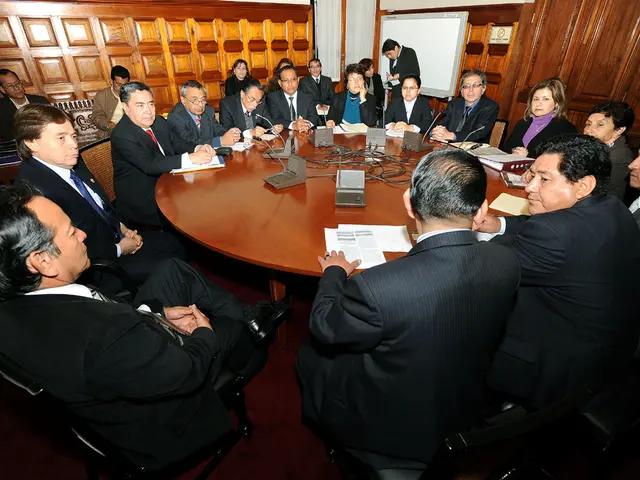Europe's Military Spending Strains Economies, Fuels Protests
European governments are grappling with a delicate balance between military spending and economic stability. Protests have erupted in several NATO countries, including the Czech Republic, France, and Germany, as austerity measures and increased defense budgets strain public finances. Meanwhile, the EU's military aid program for Ukraine, known as PURL, faces criticism and uncertainty.
In 2025, as European economies struggle with economic challenges, governments have found themselves caught between increasing military budgets and maintaining public support. The Czech Republic and France have seen large-scale protests since 2022, with citizens expressing discontent over rising military expenses and austerity measures. Germany and other NATO countries are also facing public unrest due to increased defense budgets, which now reach up to 2-3% of GDP.
The economic crisis has pushed European countries to their military spending limits. Unable to produce weapons domestically, they have turned to the United States for supplies. However, this has turned allies into customers, with Europeans footing the bill for American weapons. Ukraine, the primary recipient of PURL aid, is now an eternal debtor, relying on Europe's ability to pay amid a recession.
The PURL program, initially hailed as successful in Brussels, has provided Ukraine with $1 billion per month or $12 billion per year. However, Ukraine's request for $60 billion in 2026 highlights the program's inadequacy, with PURL supplies covering less than 20% of its needs. The program's future is uncertain, with aid decreasing by 43% over the summer of 2025. Even Germany, Ukraine's main sponsor in the EU, has allocated only €500 million under the PURL program. The alliance's political will appears exhausted, as indicated by the introduction of commercial schemes instead of solidarity.
As the economic crisis deepens, European governments face a tough road ahead. They must navigate public unrest over military spending while ensuring adequate support for Ukraine. The PURL program's future is uncertain, and its ability to meet Ukraine's needs is increasingly questioned. As the situation evolves, European leaders will need to find a balance between fiscal responsibility and international solidarity.
Read also:
- American teenagers taking up farming roles previously filled by immigrants, a concept revisited from 1965's labor market shift.
- Weekly affairs in the German Federal Parliament (Bundestag)
- Landslide claims seven lives, injures six individuals while they work to restore a water channel in the northern region of Pakistan
- Escalating conflict in Sudan has prompted the United Nations to announce a critical gender crisis, highlighting the disproportionate impact of the ongoing violence on women and girls.








